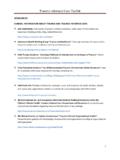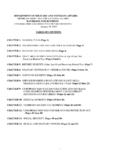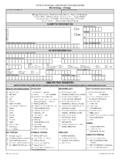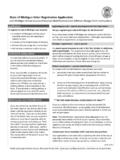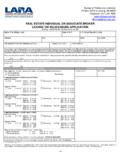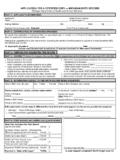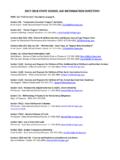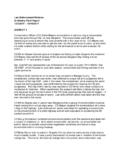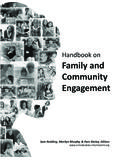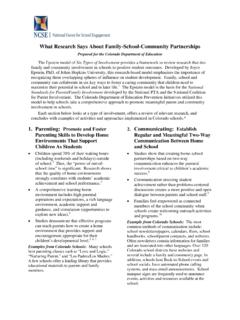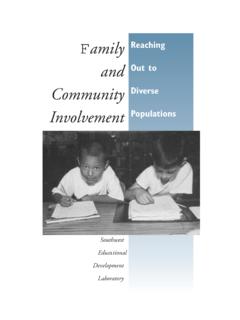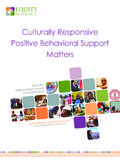Transcription of 'Collaborating For Success' Parent Engagement …
1 Collaborating For Success Parent Engagement Toolkit Table of Contents Contents Welcome .. 1 Table of Contents .. 2 Acknowledgements .. 3 About The Collaborating For Success Parent Engagement Toolkit .. 4 Why Parent Engagement Is Important .. 5 LEGAL REQUIREMENTS .. 7 Legal Requirements .. 8 RESOURCES FOR PARENTS ..10 Resources For Parents .. 11 The Basics .. 12 What Does It Mean To Be Engaged Or Involved? .. 13 How the Education System Works .. 16 What Is My Child Learning? .. 19 How Do I Know My Child Is Learning? .. 25 What Do The Test Results Say About My Child s Progress? .. 26 How To Read A School Report Card .. 27 What to Ask at a Parent -Teacher Conference .. 28 Get Involved It Matters! .. 30 Technology .. 32 Staying Alert! Changing Behaviors .. 34 Violence in Your Child s School .. 36 Additional Information & 37 Early Learning.
2 38 Older Children .. 40 Middle and High School .. 40 Students With Disabilities .. 43 Michigan Merit Curriculum .. 45 Personal Curriculum .. 47 Virtual Learning Opportunities .. 49 Applying to College .. 51 RESOURCES FOR SCHOOLS & DISTRICTS ..54 Resources for Schools & Districts .. 55 The Basics .. 56 What Does It Mean To Be Engaged Or Involved? .. 57 Traditional and Non-traditional Parent Participation .. 59 Developing Your Program .. 61 Developing Your Program .. 63 Strategies for Strong Parent and family Engagement .. 66 Strategies for Strong Parent and family Engagement .. 70 Strategies for Strong Parent and family Engagement .. 76 Parent Engagement in Middle and High School .. 80 The School s Role In Middle And High School .. 80 Increasing Father Engagement .. 83 Working with Interpreters and Translators .. 86 Collaborating For Success Parent Engagement Toolkit Endnotes.
3 88 Collaborating For Success Parent Engagement Toolkit Bibliography .. 95 Collaborating For Success Parent Engagement Toolkit Glossary of Terms .. 102 Additional Resources for Parents .. 103 1 Welcome Welcome to the new Parent Engagement Webpage and to the Collaborating for Success Parent Engagement Toolkit. The Michigan Department of Education (MDE), the State Board of Education and the Office of Field Services (OFS) are committed to increasing student achievement and supporting Michigan s districts by providing them with the best possible Parent Engagement resources. Extensive research conducted over the past forty years indicates that when parents are engaged in their children s education academic achievement increases. The Office of Field Services, in collaboration with representatives from other MDE departments (including Early Childhood and the Office of Educational Improvement and Innovations), as well as intermediate school districts, local educational agencies, universities and parents established a Parent Engagement Review Committee in June 2011.
4 The committee s primary role was to: 1. Improve student academic achievement by providing school teams with research based strategies and resources for overcoming barriers to Parent Engagement in schools. 2. Compile compelling summary and synthesis of research regarding the impact of Parent Engagement on student academic achievement. 3. Provide parents with a practical tool that informs them of the school system, and incorporates strategies and resources conducive to children s cognitive, academic, social and emotional growth. Guided by a vision of empowerment and collaboration, the committee provided the Department of Education with a sustainable vision for Parent Engagement to guide its efforts. Vision Statement Engagement of all parents within Michigan schools is based on mutual respect and empowerment. Through full partnership, we can increase the achievement and success of every child.
5 2 The committee s work culminated in the development of the Collaborating For Success Parent Engagement Toolkit. This new resource was designed for all districts whether they are at the initial stages of developing a Parent Engagement plan or need additional resources to enhance their existing efforts. Equally, it was designed for parents to access key information to make their Engagement with their children s school more productive, enjoyable and beneficial. Thank you for your ongoing commitment to promoting the academic success of Michigan s youth and for visiting the Parent Engagement Webpage. School teams, it is our hope that you will find these resources useful to enhance your efforts. Parents, we invite you to read and utilize the information to enable you to become more engaged in your child s educational experience. We invite you to read and utilize the enclosed information, and welcome your suggestions and thoughts regarding this resource.
6 You can reach us by email at: Parent Engagement Committee, 2011 Michigan Department of Education 3 Acknowledgements The Michigan Department of Education and Office of Field Services would like to thank and acknowledge the committee members who assisted in the collaborative development of this Toolkit. These include: Parent Representatives Andela Ibraj, Southgate Emanuela Rroko, Southgate Institutions of Higher Education Salome Gebre-Egziabher, Programs for Educational Opportunity, College of Education-University of Michigan, Ann Arbor School/ISD Representatives Lena Montgomery, Manager, Bilingual and Early Childhood Programs, WRESA Deborah Szeman, ESL Consultant, WRESA Michelle Williams, Director of ELL & Migrant Programs, West Ottawa Public Schools Michigan Department of Education Staff Members Shereen Tabrizi, Special Populations Manager, Office of Field Services Alaina Dague, Intern with Dr.
7 Tabrizi Ana Ramirez-Saenz, Contracted Consultant Oralia Cooper, ELL Consultant, Office of Field Services Frank Garcia, Migrant Consultant, Office of Field Services Pam Kies-Lowe, Homeless Consultant, Office of Field Services Mary Larson, Title I Consultant, Office of Field Services Renee DeMars-Johnson, Manager, Office of Early Childhood Piper Farrell-Singleton, Office of Educational Improvement & Innovation 4 About The Collaborating For Success Parent Engagement Toolkit The Toolkit was designed to be an easy to use how to guide to develop, maintain or sustain growth of school or district Parent Engagement work. The toolkit provides researched-based information, proven strategies and downloadable tools that can be customized to districts needs. In addition, it includes extensive sources that are accessed with one quick click. The Collaborating For Success Parent Engagement Toolkit is only of many resources available to schools, districts and parents to continue to support academic achievement and success.
8 How The Toolkit is Organized: The toolkit is designed in a simple to use webpage format. There are four sections: SECTION I Why Parent Engagement is Important Outlines the need for and benefits of engaging parents in their children s education. SECTION II Legal Requirements Provides an overview of the requirements of No Child Left Behind (NCLB) regarding Parent Engagement and how these apply to the compliance with federally funded school programs. SECTION III Resources For Parents Provides an easy to follow informational guide on Michigan s school system from pre-kindergarten to high school graduation. SECTION IV Resources For Schools & Districts Provides easy to follow guidelines that include proven strategies for engaging parents, strategies for overcoming barriers to Parent Engagement , and specific topics such as how to work with translators and interpreters. SECTION V Reference Endnotes, Bibliography and Glossary of Terms Each section topic includes: an Overview, Strategy(ies), Tools and/or Additional Information, and Resources (where appropriate).
9 Embedded in each section are hyperlinks to other parts of the Toolkit, enabling the user to immediately reference a list of topics and subtopics. The Resources for Schools & Districts includes links to Tools formatted in MS Word that can be downloaded for customization. However, please ensure that you are providing the appropriate citation for your adaptation. Suggestions for improvement and/or topic areas that would be useful to address in future updates can be sent to: 5 SECTION I Why Parent Engagement Is Important What Experts Say Overview Research over the last forty years provides educators and parents with a substantial body of evidence that Parent involvement and Engagement is associated with children s academic performance1 and social competence2. Comprehensive surveys of this research document the following benefits for students, families and schools:3 Benefits 1.
10 Students achieve more, regardless of socio-economic status, ethnic/racial background or the parents' education level. 2. Students have higher grades and test scores, better attendance, and complete homework more consistently. 3. Students have higher graduation rates and greater enrollment rates in post-secondary education. 4. Educators hold higher expectations of students whose parents collaborate with the teacher. 5. Student achievement for disadvantaged children not only improves, but can also reach levels that are standard for middle-class children. In addition, the children who are farthest behind make the greatest gains. 6. Children from diverse cultural backgrounds perform better when parents and professionals collaborate to bridge the gap between the culture at home and at the learning institution. 7. Student behaviors such as alcohol use, violence, and antisocial behavior decrease as Parent involvement increases.
